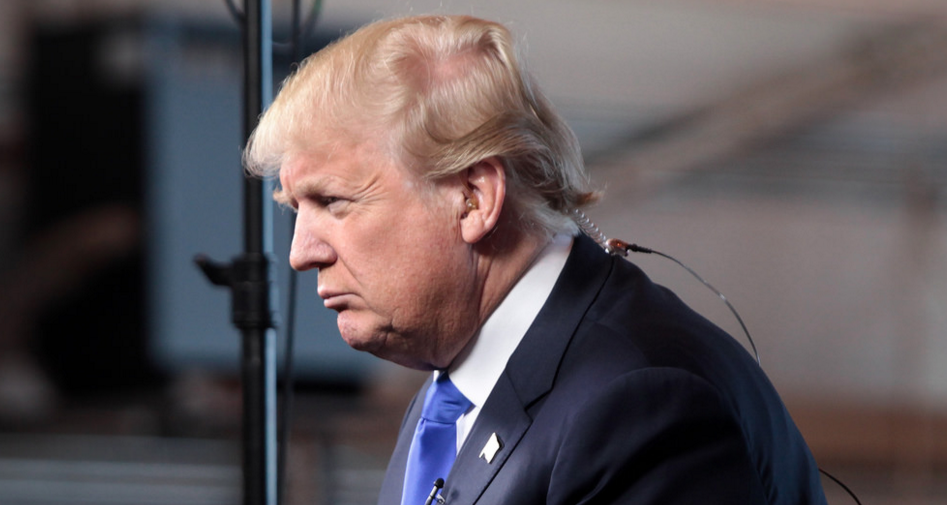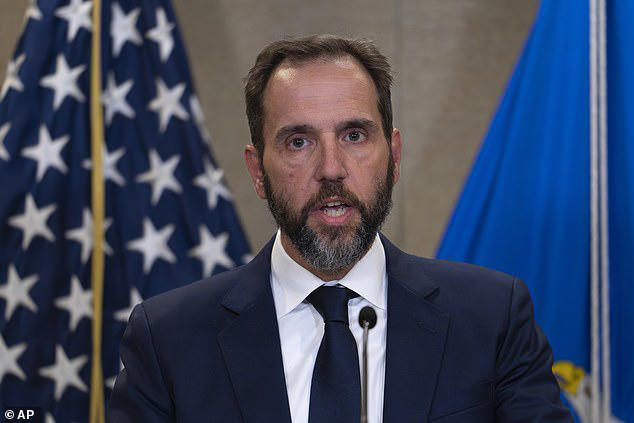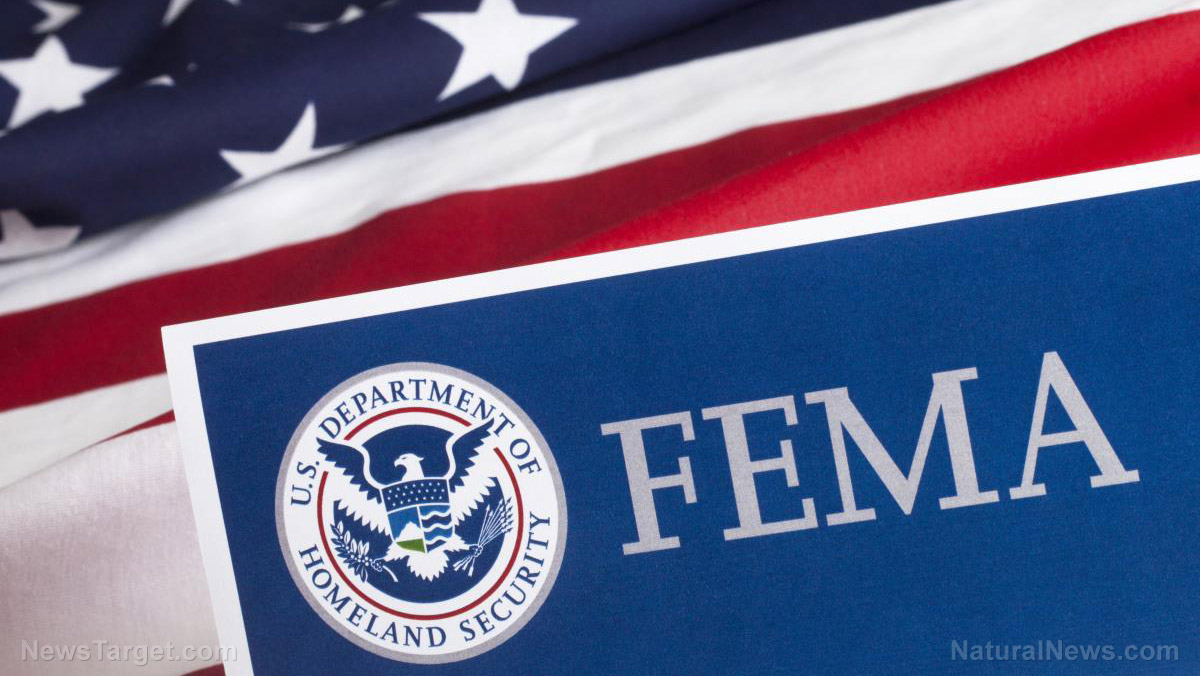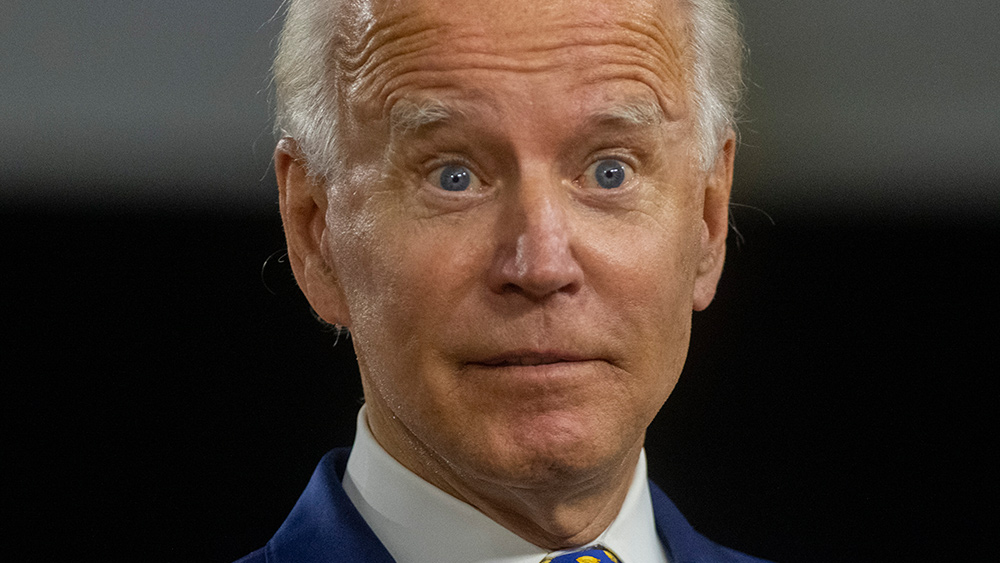 Parler
Parler Gab
Gab
Double jeopardy clause prohibits punishing twice
The Supreme Court has affirmed that "the Double Jeopardy Clause prohibits merely punishing twice, or attempting a second time to punish criminally, for the same offense." Because the president has already been prosecuted twice for the asserted crimes underlying both of Smith's indictments, the legal remedy has already been applied. There is simply no other form of legal redress that is tolerable under the Constitution. Special Counsel Jack Smith. (Photo credits: AP)
He also said that Biden's DOJ has already prosecuted Trump to the fullest extent the Constitution allows, and on each count, he has already been acquitted of any criminal wrongdoing.
The factual grounds on which the former president allegedly committed crimes within his official duties as president have already been twice considered by the House of Representatives, for which the president, in conformance with Article II, Sec. 4, was acquitted both times by the Senate. Therefore, to continue to bring charges against the former president for the asserted crimes on which he has already been prosecuted is by definition an abuse of the judicial power and an express violation of the Double Jeopardy Clause of the Fifth Amendment: "nor shall any person be subject for the same offense to be twice put in jeopardy of life or limb," the law expert explained.
Trump, the first current or former president in U.S. history to face criminal charges while in his third presidential bid, currently has four outstanding indictments. He was first indicted in March by the Manhattan district attorney on state charges related to a hush-money payment to an adult film star in 2016. Prosecutors alleged he was part of an illegal conspiracy to undermine the integrity of the 2016 election. Furthermore, they alleged he was part of an unlawful plan to suppress negative information, including the $130,000 payment.
In June, he was also indicted by a federal grand jury in Miami for taking classified national defense documents from the White House after he left office and resisting the government's attempts to retrieve the materials. On July 27, the special counsel charged him with three new counts, including one additional count of willful retention of national defense information.
Trump's third indictment is a result of Smith's investigation into his alleged efforts, and that of his allies, to overturn the 2020 election. It also alleged he and a co-conspirator "attempted to exploit the violence and chaos at the Capitol by calling lawmakers to convince them to delay the certification" of the election.
Lastly, an Atlanta-based grand jury on August 14 indicted him and 18 others on state charges stemming from their alleged efforts to overturn the former president's 2020 electoral defeat. The charges were brought in an investigation led by Fulton County District Attorney Fani Willis. Trump pleaded "not guilty" on all charges. (Related: RIGGED: Trump's charges appeared briefly on Fulton County website way before grand jury officially announced indictment.)
Visit Trump.news for more news related to the ongoing legal battle the former president is fighting.
Special Counsel Jack Smith. (Photo credits: AP)
He also said that Biden's DOJ has already prosecuted Trump to the fullest extent the Constitution allows, and on each count, he has already been acquitted of any criminal wrongdoing.
The factual grounds on which the former president allegedly committed crimes within his official duties as president have already been twice considered by the House of Representatives, for which the president, in conformance with Article II, Sec. 4, was acquitted both times by the Senate. Therefore, to continue to bring charges against the former president for the asserted crimes on which he has already been prosecuted is by definition an abuse of the judicial power and an express violation of the Double Jeopardy Clause of the Fifth Amendment: "nor shall any person be subject for the same offense to be twice put in jeopardy of life or limb," the law expert explained.
Trump, the first current or former president in U.S. history to face criminal charges while in his third presidential bid, currently has four outstanding indictments. He was first indicted in March by the Manhattan district attorney on state charges related to a hush-money payment to an adult film star in 2016. Prosecutors alleged he was part of an illegal conspiracy to undermine the integrity of the 2016 election. Furthermore, they alleged he was part of an unlawful plan to suppress negative information, including the $130,000 payment.
In June, he was also indicted by a federal grand jury in Miami for taking classified national defense documents from the White House after he left office and resisting the government's attempts to retrieve the materials. On July 27, the special counsel charged him with three new counts, including one additional count of willful retention of national defense information.
Trump's third indictment is a result of Smith's investigation into his alleged efforts, and that of his allies, to overturn the 2020 election. It also alleged he and a co-conspirator "attempted to exploit the violence and chaos at the Capitol by calling lawmakers to convince them to delay the certification" of the election.
Lastly, an Atlanta-based grand jury on August 14 indicted him and 18 others on state charges stemming from their alleged efforts to overturn the former president's 2020 electoral defeat. The charges were brought in an investigation led by Fulton County District Attorney Fani Willis. Trump pleaded "not guilty" on all charges. (Related: RIGGED: Trump's charges appeared briefly on Fulton County website way before grand jury officially announced indictment.)
Visit Trump.news for more news related to the ongoing legal battle the former president is fighting.
Sources include:
AmericanMind.org Edition.CNN.comGov. Sarah Huckabee Sanders: NO COVID-19 LOCKDOWNS for Arkansas
By Ramon Tomey // Share
By Arsenio Toledo // Share
BOMBSHELL: Recorded conversation proving Joe Biden’s corruption to be released in coming weeks
By Richard Brown // Share
Mike Lindell shares plan to put elections back in the hands of American voters
By Kevin Hughes // Share
NASCAR goes woke, EXCLUDES WHITES from internship program
By Ramon Tomey // Share
Experts warn that a worldwide lithium shortage could come as early as 2025
By Laura Harris // Share
Governments continue to obscure COVID-19 vaccine data amid rising concerns over excess deaths
By patricklewis // Share
Tech giant Microsoft backs EXTINCTION with its support of carbon capture programs
By ramontomeydw // Share
Germany to resume arms exports to Israel despite repeated ceasefire violations
By isabelle // Share










